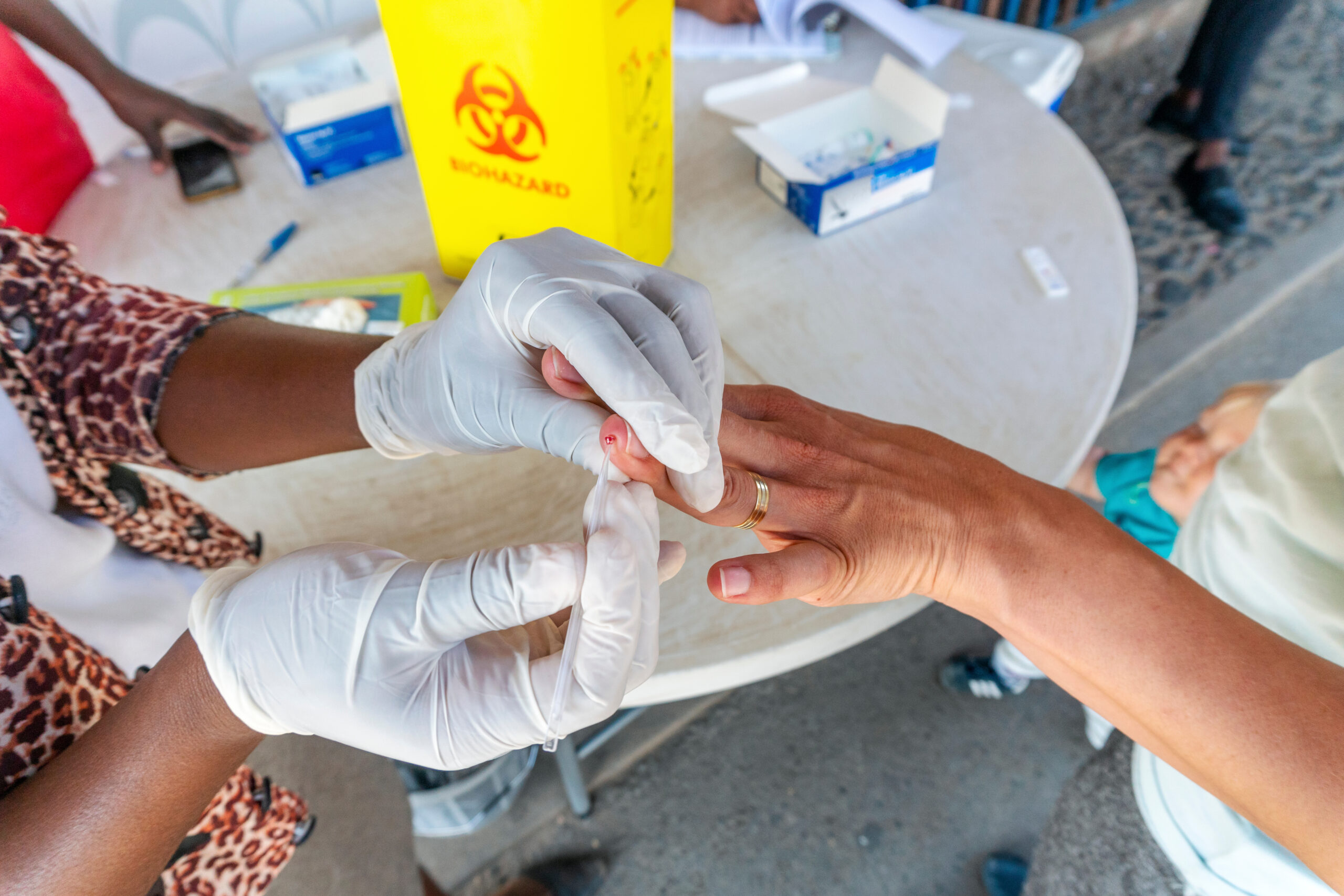
Blog
September 18, 2023
Anti-corruption, the missing link in global health security and the attainment of Universal Health Coverage

Jonathan Cushing, Programme Director, TI Global Health Programme
When Victoria Amponsah sought treatment for malaria she thought that she would quickly recover once she got the medicine prescribed to her from the pharmacy. But she didn’t. Her condition worsened and she ended up hospitalised. She later learned that the pills she had been prescribed were falsified.
Victoria’s story is sadly one of many. Globally it is estimated that over 116,000 people die due to poor-quality malaria medicines every year.
Corruption has been an open secret in the health sector for many years. Yet, the myriad forms of healthcare-related corruption remain a barrier to ensuring global health security and the attainment of Universal Health Coverage.
Transparency International Global Health estimates that financial losses attributable to corruption in the health sector stand at some $560 billion per year. That’s more than 6 per cent of the nine trillion dollars annually spent on health across the world.
In countries of all income levels, the COVID-19 pandemic demonstrated how opacity and a lack of accountability hampered the ability of health systems to respond effectively. Issues observed included corruption in procurement of emergency supplies, opacity of contracts slowing access to vaccines, and users paying bribes to receive essential health services.
The pandemic confirmed that the situation has not improved for patients. However, neither of the draft political statements for the upcoming High-Level Meetings on Universal Health Coverage or Pandemic Prevention, Preparedness and Response reflect the urgent need to take action against corruption and improve accountability and transparency. It would appear that despite all the talk of learning lessons from COVID-19, global leaders are still in denial as to the extent and impact of corruption within the health sector.
It is vital that those attending the meetings later this month acknowledge and act accordingly to prevent, detect and respond to corruption as it continues to undermine progress towards health care for all and preparations for the next global health emergency.
The incentives for the global community are clear. Embedding anti-corruption and transparency approaches into both global health architecture and national health systems will deliver resilient systems that are fair and effective in times of emergency, as well as for the delivery of routine care, and will also rebuild waning trust in public health services.
To achieve this, both resolutions being tabled must include commitments to limit the impact of corruption throughout health systems.
In particular, Transparency International Global Health believes they should include:
- Recognising the need to fully embed anti-corruption, transparency and accountability measures into all levels of health systems
- Ensuring greater transparency across health systems planning, resourcing and expenditure to improve accountability, and minimise corruption opportunities, and allow effective monitoring both by national authorities, as well as by third party institutions, such as civil society
- Inclusion of transparent procurement mechanisms (e.g., open contracting, establishment of beneficial ownership registers, live audits) into national systems
- Increase the capacity, both at the international and national levels to manage medical supply chains, and improve surveillance to reduce the risk of proliferation of substandard and falsified medical products
- Improve coordination mechanisms to share intelligence, and better manage risks around falsified drugs and products.
- Introduce whistleblower protections and mechanisms into national health systems
The following should be considered for inclusion in the Prevention, Preparedness and Response resolution:
- Ensure at least minimum standards of public transparency of pandemic financing mechanisms, including all processes and policies, contracts and agreements for funding allocations, fund disbursement and activities, and full public audits of allocated funds
- Commit to increasing the transparency of financing for pandemic preparedness response at the national, regional and international levels, especially to enable effective oversight monitoring both by national authorities, as well as by third party institutions, such as civil society
- Promote full public disclosure of clinical trial results within 30 days, and release of clinical study reports within 60 days during health emergencies
- Promote full disclosure of contracts during health emergencies, with full publication ideally within 90 days of conclusion of the procurement contract.
- Mandate the use of live audits during health emergencies, along with full audits on conclusion of the emergency to detect wrongdoing, and assess the effectiveness of anti-corruption measures.
Similarly, the following should be considered for inclusion in the Universal Health Coverage resolution:
- Recognition that good governance, social justice, accountability and ending corruption are integral to the attainment of UHC
- Recognise that bribery and informal payments to access health services impede access, and result in financial hardship.
- Ensure that health sector budgets and expenditure reports are routinely published
- States should conduct vulnerability and loss analyses on a routine basis to understand where the major losses in the health sector occur
- Greater utilisation of participatory governance mechanisms, including the introduction of oversight and accountability mechanisms to allow communities and users to have a greater voice in holding service providers to account, and shaping health service delivery
The UN High-Level Meetings present a real opportunity to get progress towards Universal Health coverage back on track and ensure that future disease outbreak responses are not compromised by corruption, waste and private-interest.
Realising the potential of these twin resolutions to bring attention and action to anti-corruption efforts in health systems can serve to improve system function and rebuild public trust. Failure to do so will jeopardise the attainment of health for all as set out in Sustainable Development Goal 3, and will ensure that there will be many more like Victoria who pay the price in the years to come.